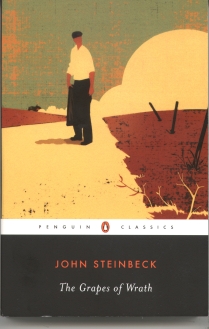ARTS AND HUMANITIES
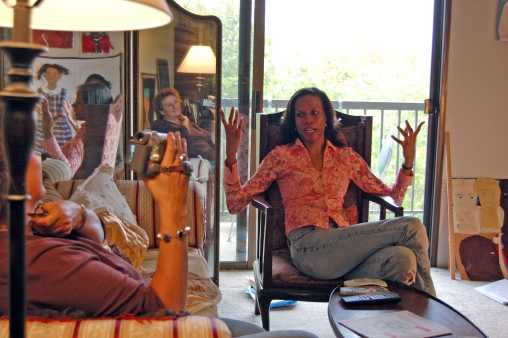
Riché Richardson
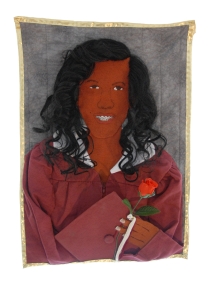
One of Riché Richardson's art quilts. See larger image
Richardson shares art quilts and American perspective as cultural envoy in Paris
Riché Richardson, associate professor of Africana studies, spent a week in Paris in January as a cultural envoy to France sponsored by the U.S. Embassy. She gave a series of lectures in the city, where her art quilts depicting Barack Obama, Josephine Baker and Simone de Beauvoir were being exhibited.
The visit coincided with the Paris opening of "Un patchwork de cultures: une exposition itinérante de la Louisiane vers la France," a traveling quilt exhibition on display at locations including the U.S. ambassador's residence and at City Hall 5 (in Paris's fifth district).
Richardson gave talks at various schools and exhibition spaces, and at the embassy and ambassador's residence. She met with a newly formed diversity group at the embassy, where she gave a talk on "Southern Horrors, Global Terrors: Hurricane Katrina and Inequities of Race and Gender in the United States," which served as a "foundation for an in-depth dialogue on diversity," Richardson says.
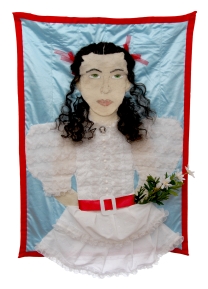
An art quilttitled 'Scarlet.' See larger image
Richardson also gave a gallery talk on the legacy of Rosa Parks, St. Jude Educational Institute and the Youth Mission in Montgomery, Ala., for 25 vocational school students; spoke about art, education and art literacy at Martin Luther King High School; lectured on "The 'Race Card' Myth, Diversity and Civility in Academia" for a group of engineering students; participated in an exhibit tour and quilting workshop with a Parisian underprivileged women'sgroup; talked to African-American history students about Rosa Parks and the civil rights movement; and delivered a lecture on "Black Masculinity and the U.S. South" for American studies scholars.
Her quilt "Obama Time: Always" inspired many students to engage her in conversations about the then president-elect, citizenship and exclusion in France, Richardson says.
"They made me think about how I function as an artist and as a role model," she says. "They were interested in drawing on aspects of the African-American experience to underscore the sense of alienation they feel inside the French system."
A short film, "Riché Richardson: Portrait of the Artist," by Géraldine Chouard and Anne Crémieux, was shown at the ambassador's residence, where Richardson gave a talk on Montgomery modernism for an audience of scholars, students and French and American quilters. (Chouard also documented the exhibition and Richardson's visit in a photo album at picasaweb.google.com/chouard.geraldine/09_01_Un_Patchwork_de_Cultures_Paris.)
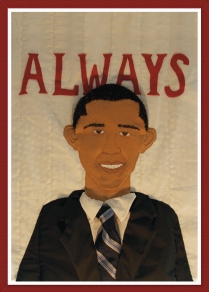
One of Riché Richardson's art quilts. This one depicts then-President-elect Barack Obama. See larger image
The cultural envoy experience "has helped to transform me, about how I conceptualize my teaching and how I make my art," Richardson says.
A native of Montgomery, Richardson came to Cornell in 2008 from the University of California-Davis. Her academic focus is on Southern culture and African-American literature, and her quilt work is part of a long Southern tradition. Her quilts have also been exhibited at the Rosa Parks Library and Museum in Montgomery.
"Un patchwork de cultures" exhibition coverage and Richardson's essay "Binding Nations Through Art Quilts and a Trip to the U.S. Embassy as a Cultural Envoy" will appear in the electronic journal TransAtlantica: Journal of American Studies.
Richardson also garnered press coverage for her inclusion in the new book "Crafted Lives: Stories and Studies of African-American Quilters" by Patricia A. Turner. "Obama Time: Always" was selected by curator Roland Freeman for the exhibition "Quilts for Obama," on display through July 26 at the Historical Society of Washington, D.C.; and her Josephine Baker quilt will be exhibited this summer in Sag Harbor, N.Y.
"I'm now working on a quilt of Michelle Obama," Richardson says.
Depression-era Steinbeck novel is recession-year Reading Project
"The Grapes of Wrath," John Steinbeck's once-controversial and now-classic 1939 novel of Dust Bowl refugees who struggle to make a new life in California, is the 2009 selection for Cornell's New Student Reading Project.
"It is an extraordinarily rich account of major economic and social upheaval during a pivotal era in American history," says Michele Moody-Adams, Cornell's departing vice provost for undergraduate education.
She adds that the book has a special relevance in a year of deep economic recession. "The book makes us reflect on the causes and effects of widespread homelessness and unemployment, the nature of economic and social justice, and the consequences of taking the vibrancy of the natural world for granted. It's a good thing for undergraduates to have to confront these questions at the current moment."
The book will be read by much of the Cornell community, including the entire incoming freshman class, new transfer students and those faculty and staff who will lead reading groups during student orientation in late August. The greater Ithaca community will also participate, with support from the Tompkins County Public Library, a Reading Project partner.
Steinbeck wrote his contemporary and very American story of the Joad family and their fellow migrants in 1938 and 1939. The most famous of the author's 17 novels, "The Grapes of Wrath" was initially widely banned but also widely read, and was quickly adapted into a 1940 John Ford film starring Henry Fonda that expanded on the politics suggested by the novel. The book won the Pulitzer Prize for fiction in 1940. Steinbeck earned a Nobel Prize in literature in 1962.
Moody-Adams says she hopes to see a community service project or event grow from Cornell's engagement in the novel's major and minor themes, which include poverty, migrant and immigrant labor, the power of community, and the social and economic effects of ecological disaster.
This will be the ninth year of the reading project, which is designed to provide a common intellectual experience for the Cornell community.
Incoming students will receive copies of the book to read over the summer. An essay contest and discussions during Orientation Week will emphasize critical thinking, and related exhibits, lectures, films and other events will occur throughout the academic year.
As in previous years, the reading project will be accompanied by a Web site, reading.cornell.edu, and a blog written by Cornell librarians and guest writers.
